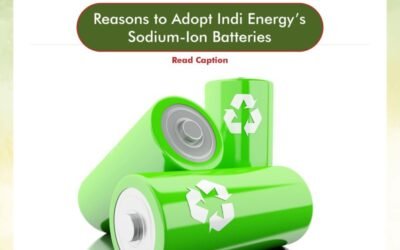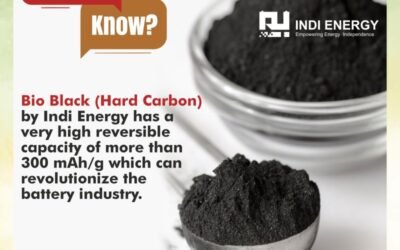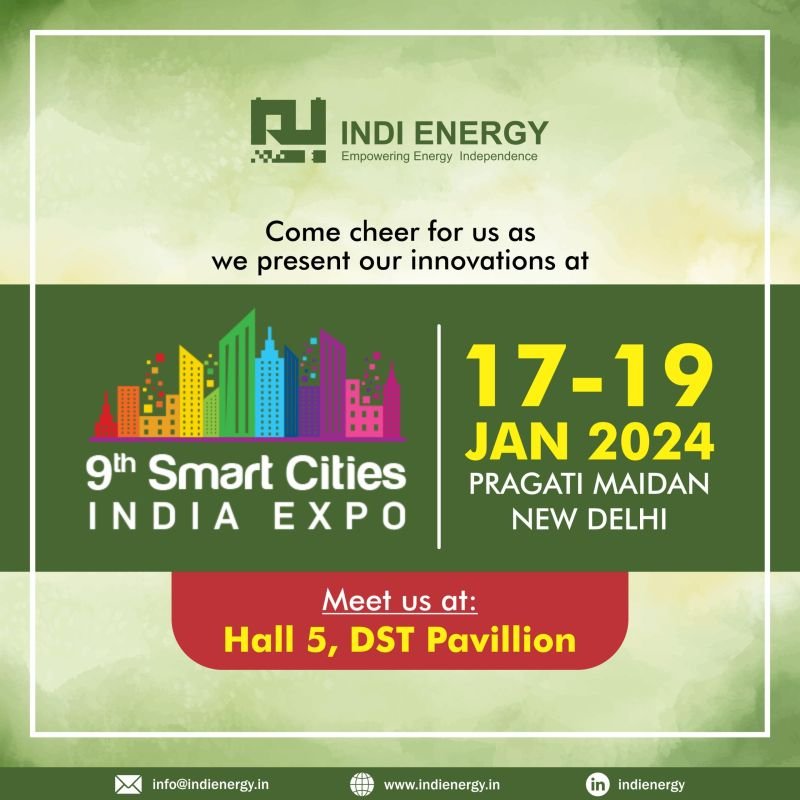
Indi Energy is back with the eleventh edition of “Sodium-ion Batteries Technology Updates.”
Indi Energy, a DRDO 3.0 and National Startup Award winner is an energy storage startup from India developing and commercializing sodium ion batteries. Through this eleventh edition of “Sodium ion batteries technology updates” we are bringing to you the recent developments in the world of energy storage technology. Let’s get started then, shall we?
The Rise of EVs in India
The electric vehicle market in India has experienced substantial growth in 2023, reaching a record-breaking 1.53 million units sold. This is a remarkable 50% year-over-year increase. These figures, provided by the Ministry of Road Transport and Highways, indicate that EVs now account for 6.4% of overall automobile sales. Notably, the monthly sales have consistently surpassed 100,000 units, with peaks in May, November, and March.
India now boasts over 3.45 million registered EVs, reflecting a growing trend toward conscious consumerism and sustainable transportation. Back by our government’s commitment to promoting EV adoption, it is evident that subsidies of $252.28 billion will support manufacturers and incentivize buyers as well.
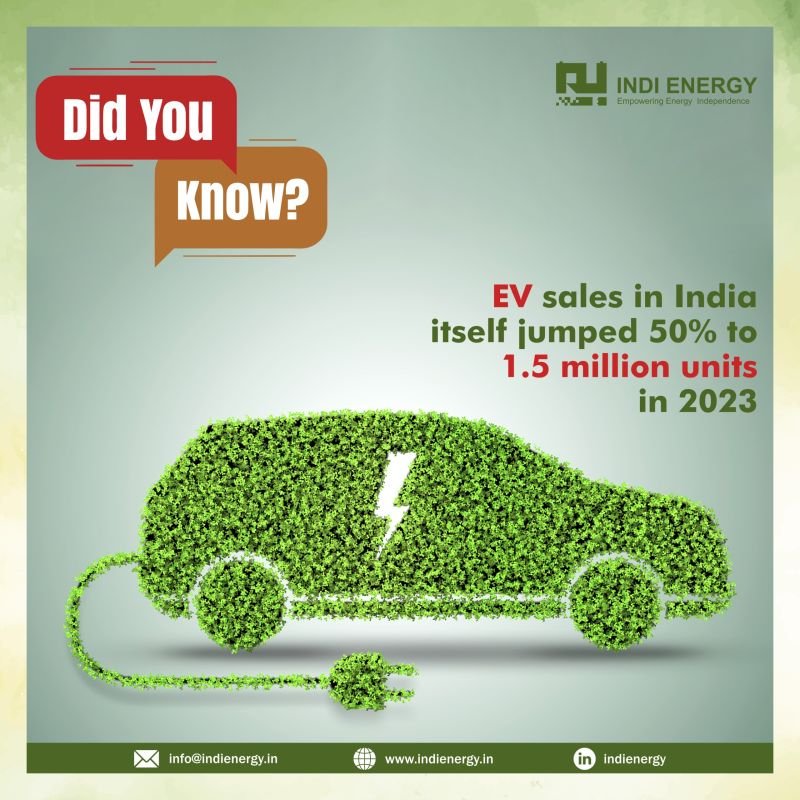
Additionally, initiatives such as the upcoming Production-Linked Initiative program and recommendations to extend FAME II underscore India’s commitment to making electric vehicles a norm in the nation’s automobile market.
As a producer of sodium ion batteries, a thriving electric vehicle market presents a significant opportunity for Indi Energy’s innovative technology to contribute to the sustainable and growing electric mobility landscape in India and around the world. Sodium ion technology will play a crucial role in enhancing the performance and affordability of electric vehicles, aligning with the nation’s push towards greener transportation solutions.
An endorsement from the Scientific Advisor of the Government of India
Recently, Mr. Ajay Kumar Sood, the scientific advisor to the Government of India, stated that “lithium is less abundant. It is not something that India will have for a long time. Instead of lithium-ion batteries for electric mobility, can we go for sodium-ion batteries and aluminium-air batteries?”
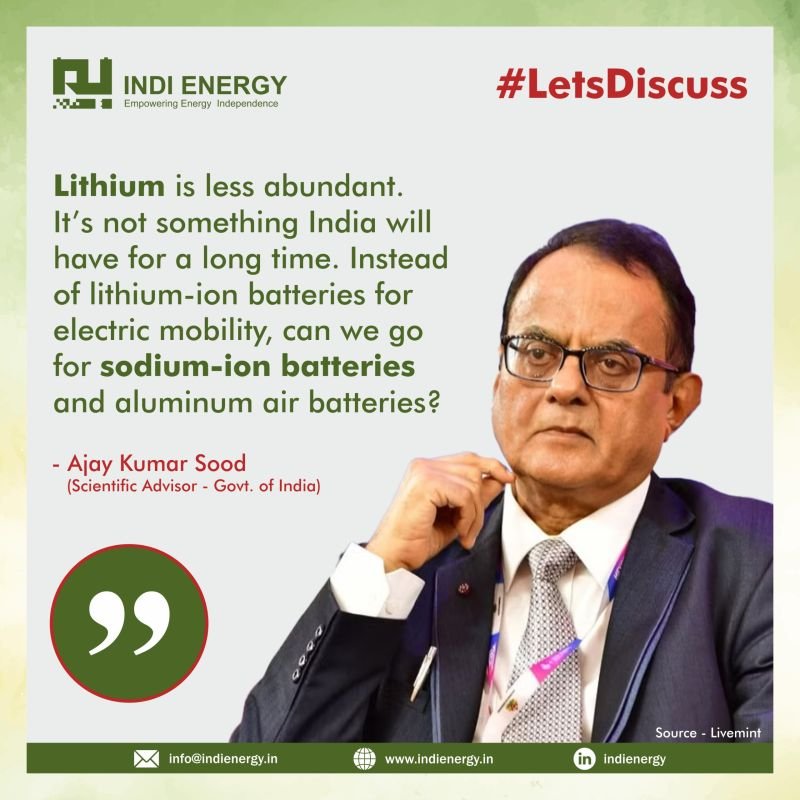
This is a profound thought because India’s push for diverse energy solutions in electric mobility has received a positive nod from the government’s principal scientific advisor, who is advocating exploring alternatives such as Indi Energy’s sodium ion batteries, emphasizing their potential scale-up for commercial use. As the prime developer of sodium ion batteries, this recognition is an opportunity for us to contribute to India’s sustainable energy goals. This acknowledgment is a forward-thinking approach, fostering innovation and paving the way for sodium-ion technology to play a pivotal role in the country’s electric mobility revolution.
How will sodium ion batteries diversify the energy storage industry?
Indi Energy’s sodium ion batteries are expected to diversify the energy storage industry due to several factors that will be extremely important in the long term. Our batteries offer potential advantages over traditional lithium-ion batteries like lower costs, enhanced safety, and improved sustainability. The key factor is that the use of widely available and inexpensive materials such as sodium can drastically reduce supply chain risks. Additionally, sodium-ion battery packs from Ind Energy can be stored at zero volts, enhancing safety during transportation compared to lithium-ion batteries stored at 30% charge.
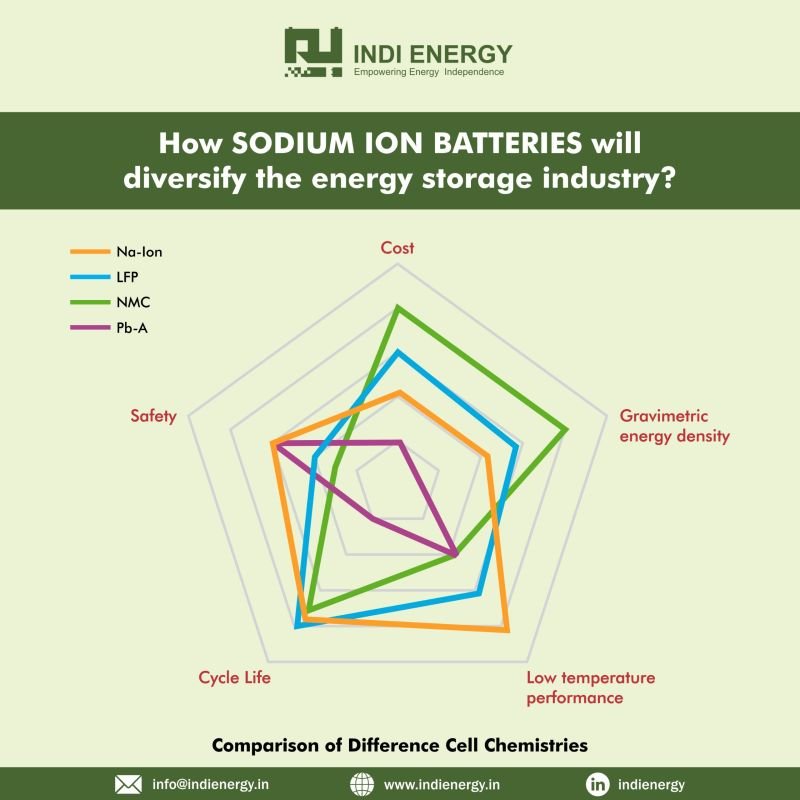
And how can we leave behind the cost advantages, which are estimated to be 25–30% lower material costs than lithium-ion batteries, contributing to their potential to diversify energy storage options? Furthermore, industrial involvement in this research has given new grounds for its capabilities. Research has proved that sodium-ion batteries exhibit high-power characteristics, with reports of approximately 1000 W/kg, surpassing certain lithium-ion cells. Despite the presently lower current energy density compared to high-energy lithium-ion cells, sodium-ion batteries are fast approaching the energy density of high-power lithium-ion phosphate cells.
At Indi Energy, we are not just aiming for innovation but for global accessibility. We invite you to come and join us. Connect with us on Facebook and LinkedIn, or through our contact page. Share your thoughts and expertise, and we promise you we will collectively overcome the obstacles and set off on a path to a sodium-ion-powered future.



